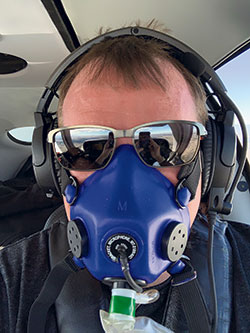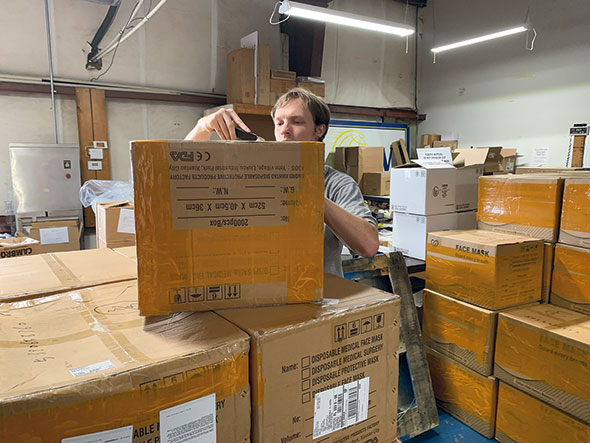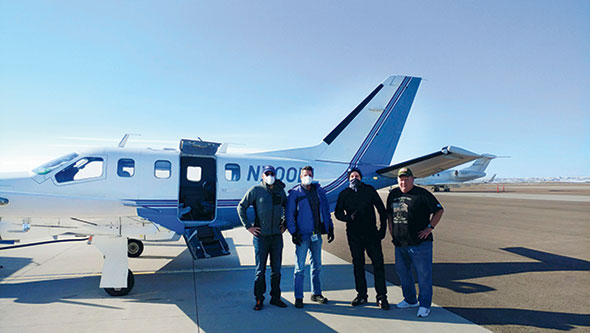While much has been made about the way mandated closures to thwart the spread of COVID-19 have decimated restaurants and other foodservice operators, the fallout from this pandemic continues to impact individual members of the supply chain in different ways. Take, for example, Brad Pierce, president of Restaurant Equipment World, an Orlando, Fla.-based foodservice equipment and supplies dealer. Pierce’s multifaceted business and role as an AEROBridge Disaster Response volunteer give him a unique perspective on the pandemic’s impact on foodservice and beyond.
 Brad Pierce, President, Restaurant Equipment WorldQ: How is the restaurant industry in your area of Florida faring?
Brad Pierce, President, Restaurant Equipment WorldQ: How is the restaurant industry in your area of Florida faring?
A: Our industry is absolutely devastated by this. Some operators are down 90% of their normal sales. Nobody wants to pay fine-dining prices for a steak dinner to go. One local QSR told me they are down 38% of their normal revenues, and they are really experts at serving off-premises customers. That was the real eye-opener to me.
It’s just not the same environment. There’s not as many people going to work and doing other activities outside of the home. There’s a lot of false hope out there, and this will devastate some of the smaller players. It’s definitely a sad state of affairs.
Q: Restaurant Equipment World has two sides of its business: the traditional foodservice equipment and supplies dealer and the disaster supply side. How are both holding up?
A: We actually serve the same customers with both aspects of our business. We were building kitchens for the military, and they liked that we delivered our projects on time and on budget and started asking us if we could work together in other ways. So, supplying the other items became a natural brand extension. I never thought our restaurant customer would need personal protective equipment or other medical kits, but now they do. As so many in our industry found out this is what we do, they are now reaching out to find out about our supply chain and how to meet the various needs of their customers.
Our traditional foodservice equipment business is down dramatically. To say our traditional restaurant revenues have taken an 80% decline is not inaccurate. Some regional chains have delayed their equipment orders, but they have not outright canceled their orders.
Military and government operations have been a robust part of our customer base for a while, and they don’t go home. You have to keep feeding them during a pandemic.
Q: Looking at the products your company is selling, what stands out?
A: Right now, we are doing a lot of business in hand sanitizers, masks and the like. What’s surprising to me and other dealers is that we are not doing the business in disposables as we had anticipated. But, frankly, given the business the independent operators are doing, they don’t need as much disposables, etc. The bigger chains already have that set up for them.
Certain products, like breath shields and hot food holding items, are very timely. But there’s a lot of factories taking a ‘me too’ approach, and I don’t think that will be enough to save the entire manufacturing sector. When everyone pivots at once, that pivot is no longer effective.
Q: How has your company adjusted to keep employees and customers healthy and safe?
A: Our company has not laid off a single person, and we have no plans to do so. That said, this is a bookmark in time. There’s a lot of chapters ahead. We’re working 20 hours a day, and I am part of an amazing team of people that are working so hard and doing amazing things.
We’ve installed shields at cash registers, our people are wearing masks, there’s plenty of hand sanitizer around, and we are following all of the CDC guidelines about handwashing, work and so forth.
We have a bunch of people working from home, too. Fortunately, we have people work remotely at military job sites around the country and the world, so this is nothing new for them. From emails to group chats to task management systems, our team has always had remote access to every facet of the business. So, our transition to working remotely took as long as it took to write the email.
We are also spreading out bodies in the workspace. We have nixed in-person meetings. And we have some rules about how close you can be when working with customers.
For the cash and carry side, we’ve communicated our expectations. We’re open as an essential business to support restaurants. We’d rather customers be shopping and not browsing in the stores. They can even call in their orders, and we will have it ready for them.
 Tthe crew at Restaurant Equipment World remain hard at work throughout the pandemic.
Tthe crew at Restaurant Equipment World remain hard at work throughout the pandemic.
Q: How’s the team holding up?
A: Our staff was a little apprehensive at the start of all this. Having solid and regular communication about what’s happening and why has helped. We speak frankly with one another, and as a result, we have a good rapport. That translates into a long history based on trust.
We are celebrating our success in helping our customers weather this and get to the other side. Our morale is great. Our team enjoys being a part of making a difference by doing something that matters.
Q: You’re also an AEROBridge Disaster Response volunteer. Describe that program and the role it’s playing in this pandemic.
A: We’re a volunteer network of 2,100 pilots that, during times of crisis, help provide a life-sustaining bridge until government and other entities can intervene to provide the necessary goods. Our pilots fly everything from single engine planes to 737s. We cover the expenses 100% out of our own pockets. Nobody gets paid for this. We do this out of our desire to help others.
We are professionals and run missions with military precision. That said, COVID-19 changed everything for us. Typically, in a disaster, we set up staging areas and move supplies to the region impacted by the disaster. Given the widespread nature of COVID-19, though, we have to first find where the supplies are, get to them and then get the supplies to the people who need them. We are moving items all over the country and flying dozens of missions.
Our biggest challenge at the moment is there are plenty of facilities that need PPE but might be on different sides of the country, but folks don’t know this resource is available to them. So, we are trying to get the word out.
Q: You’ve had a lot of experience working with disaster relief. Based on that experience, what do you think the long-term impact of the pandemic will be on society?
A: We are returning to some family values that maybe got lost unintentionally along the way. Some of these lifestyle changes will stay with us once this is done. And that will be a good thing for all of us. Neighbors come together. Friendships are deeper. All of these positive things come together out of a crisis like this.
 AEROBridge Disaster Response volunteers continue to fly personal protective equipment and other essential items to places where they are needed throughout the country.
AEROBridge Disaster Response volunteers continue to fly personal protective equipment and other essential items to places where they are needed throughout the country.



